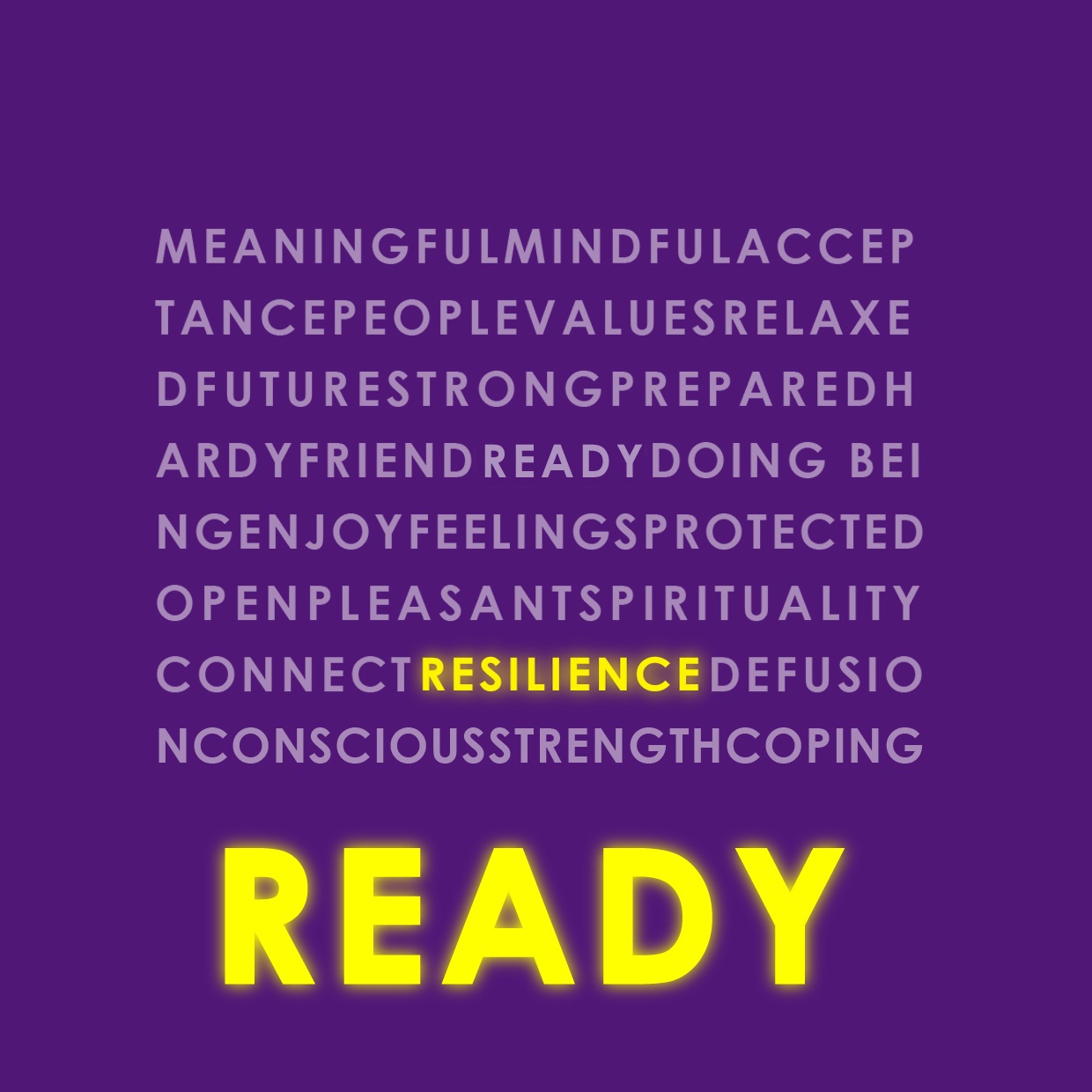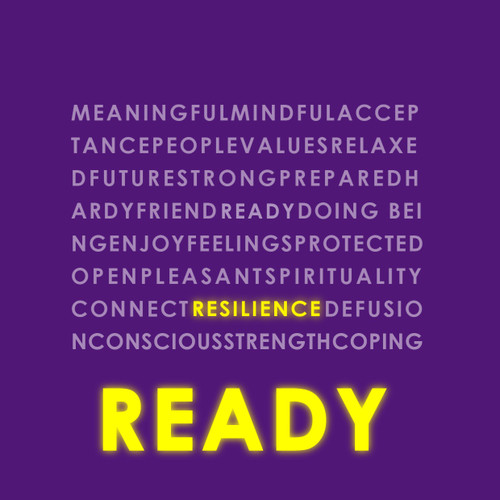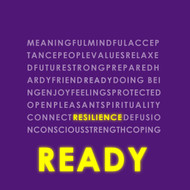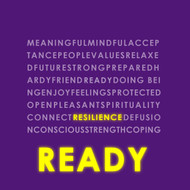Shop by Category
Shop by Category
READY PROGRAM - GENERAL USE
Product Description

READY is a group based training program to help people become more resilient in their everyday life.
It identifies key protective factors and provides information and opportunities for participants to develop practical skills and become more hardy and better able to deal with the problems of everyday life.
It has been designed for adults who want to increase general well-being and coping skills, and for those who may be at risk of elevated stress and stress-induced conditions because of specific life issues e.g., illness, trauma, life events.
Additional content modules may provided by users to tailor the program to specific contexts.
__________________________________________________________________________________________________________________________________________________
WHAT DOES THE READY PROGRAM INVOLVE?
__________________________________________________________________________________________________________________________________________________
READY is currently designed as a group-based training program:
Program Structure
READY consists of 11 modules for participants to learn the key factors and skills associated with resilience.
- Introduction: the READY model of resilience
- Physical activity: Active coping
- Mindfulness: Being fully engaged and aware
- Acceptance: Responding to unpleasant experiences
- Defusion: Responding to unpleasant thoughts
- Defusion and observer self
- Mid Review: Activating resilience strategies
- Social connectedness: Giving and receiving support
- Values and meaningful action
- Pleasurable activities and relaxation
- Putting it all together: Planning for the future
We recommend sessions are led by a health professional with training and experience in Acceptance and Commitment Therapy (ACT), given that a number of the modules are based on ACT. The practical learning sessions involve experiential exercises, information giving, group discussions, small group work, and individual reflection.
Each module takes 2- 2.5 hours. We recommend spacing the modules so that participants have sufficient time to process the information and practice skills. With weekly sessions the program is delivered over three months, though a slightly longer period is suggested.
Trainer Resource
The READY Resilience Trainer’s Resource provides information on how to structure and facilitate the group learning sessions. Most activities are rehearsed in the group sessions, and then participants can also practice the skills outside of sessions.
Participant Resource
Participants receive their own READY Resilience Resource workbook with session notes, sections to write in, and learning activities. By completing the READY Personal Plan activities, people will tailor the learning to their individual style and context and develop their own personalised resilience plan that will help them to be READY for life's challenges.
__________________________________________________________________________________________________________________________________________________
KEY RESILIENCE PROTECTIVE FACTORS
__________________________________________________________________________________________________________________________________________________
READY is based on research evidence and contemporary psychological theories so as to target those factors that promote resilience.
1. Acceptance. Resilient people “connect” with their emotional experiences, without avoiding or denying selected emotions.
2. Cognitive Flexibility. Resilient people are able to disengage from unhelpful thoughts.
3. Meaning. Resilient people have a sense of direction in life, a purpose, and values to live by, and their actions are consistent with these values. Meaning also involves consciously experiencing life and being aware of yourself and what is going on, rather than running on “automatic pilot”.
4. Social Connections. Resilient people can identify the types of social support they need and sources to obtain this. Resilient people are flexible in their ability to provide different types of social support. Social connectedness is about reducing social isolation, establishing social networks, having quality support, and giving support.
5. Active coping strategies. Resilient people use effective coping strategies in adverse situations so as to maintain good physical and psychological health. This includes being physically active.
__________________________________________________________________________________________________________________________________________________
APPLICATION AND RESEARCH
__________________________________________________________________________________________________________________________________________________
READY can be applied to many contexts and used with people across a range of experiences.
Specific examples and additional content may be used to tailor the program to specialised contexts e.g., those with a specific condition.
The program has been successfully delivered to people across a range of experiences including personal and life stress, occupational stress, diabetes, multiple sclerosis, and cancer. A bibliography is provided with the licensed materials.
Evaluations of READY indicate significant improvements on measures of resilience, positive emotions, self acceptance, personal mastery, mindfulness, personal growth, life values, autonomy, depression and stress. Participant ratings indicate a high level of acceptability and overall satisfaction with the program.
__________________________________________________________________________________________________________________________________________________
BECOME LICENSED TO USE READY
__________________________________________________________________________________________________________________________________________________
It is recommended that READY only be delivered by health professionals with training and experience in ACT.
Program supervision and support can be negotiated with the program authors if desired.
READY is available for purchase as a set of licensed downloadable pdf files and accompanying PowerPoint slide decks for use in your program delivery.
License terms and conditions do apply (see TERMS AND CONDITIONS HEADING BELOW), so please read these carefully.
Payment is via credit card only.
The following files will be available for you to download upon receipt of your credit card payment:
- Trainer Manual
- Participant Manual
- Bibliography
- 6 x audio tracks with guided relaxation and mindfulness
- Zip folder of PowerPoint slide decks for each of the 11 modules
__________________________________________________________________________________________________________________________________________________
ACKNOWLEDGEMENTS
__________________________________________________________________________________________________________________________________________________
The READY program was written by Dr Nicola Burton and Professor Ken Pakenham, and the copyright is owned by The University of Queensland. The first evaluations were conducted in collaboration with Professor Wendy Brown with funding support from a program grant (ID 301200) and a capacity building grant (ID 252977) from the (Australian) National Health and Medical Research Council and the Heart Foundation of Australia (ID G06B 2501 & ID PH08B3905).
All trials have been awarded clearance by a Research Ethics Committee in accordance with the National Health and Medical Research Council's guidelines.
 Loading... Please wait...
Loading... Please wait... 






